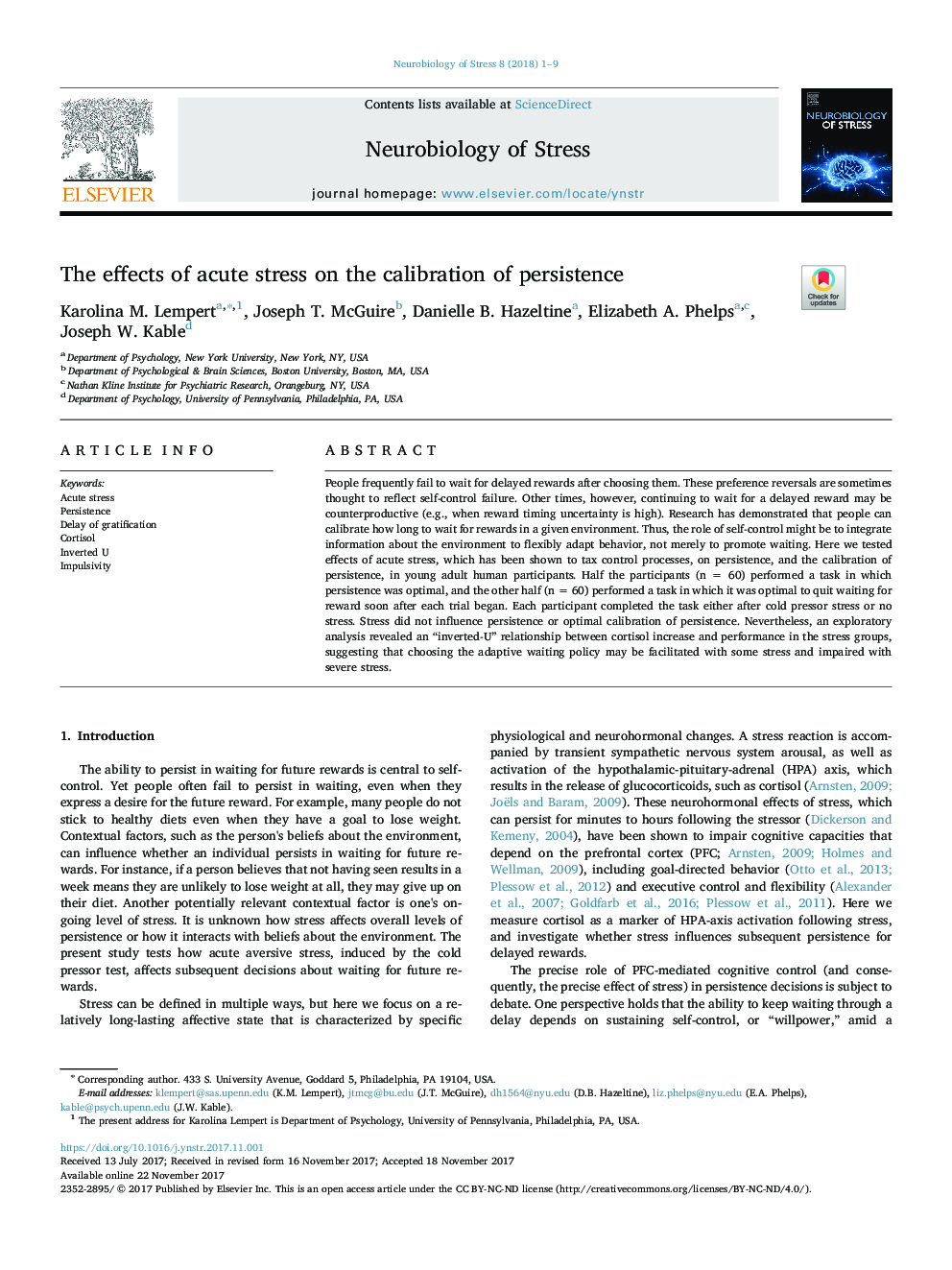| کد مقاله | کد نشریه | سال انتشار | مقاله انگلیسی | نسخه تمام متن |
|---|---|---|---|---|
| 8838719 | 1613191 | 2018 | 9 صفحه PDF | دانلود رایگان |
عنوان انگلیسی مقاله ISI
The effects of acute stress on the calibration of persistence
ترجمه فارسی عنوان
اثرات استرس حاد بر کالیبراسیون پایداری
دانلود مقاله + سفارش ترجمه
دانلود مقاله ISI انگلیسی
رایگان برای ایرانیان
کلمات کلیدی
موضوعات مرتبط
علوم زیستی و بیوفناوری
علم عصب شناسی
علوم اعصاب رفتاری
چکیده انگلیسی
People frequently fail to wait for delayed rewards after choosing them. These preference reversals are sometimes thought to reflect self-control failure. Other times, however, continuing to wait for a delayed reward may be counterproductive (e.g., when reward timing uncertainty is high). Research has demonstrated that people can calibrate how long to wait for rewards in a given environment. Thus, the role of self-control might be to integrate information about the environment to flexibly adapt behavior, not merely to promote waiting. Here we tested effects of acute stress, which has been shown to tax control processes, on persistence, and the calibration of persistence, in young adult human participants. Half the participants (n = 60) performed a task in which persistence was optimal, and the other half (n = 60) performed a task in which it was optimal to quit waiting for reward soon after each trial began. Each participant completed the task either after cold pressor stress or no stress. Stress did not influence persistence or optimal calibration of persistence. Nevertheless, an exploratory analysis revealed an “inverted-U” relationship between cortisol increase and performance in the stress groups, suggesting that choosing the adaptive waiting policy may be facilitated with some stress and impaired with severe stress.
ناشر
Database: Elsevier - ScienceDirect (ساینس دایرکت)
Journal: Neurobiology of Stress - Volume 8, February 2018, Pages 1-9
Journal: Neurobiology of Stress - Volume 8, February 2018, Pages 1-9
نویسندگان
Karolina M. Lempert, Joseph T. McGuire, Danielle B. Hazeltine, Elizabeth A. Phelps, Joseph W. Kable,
